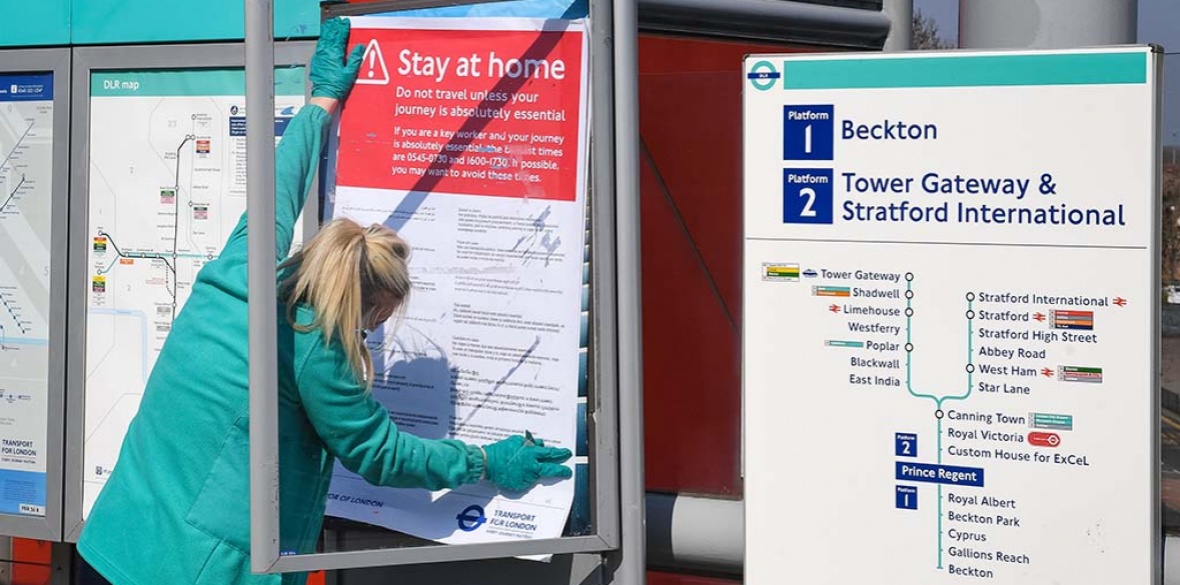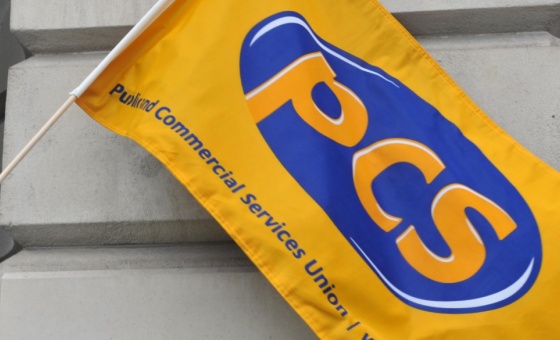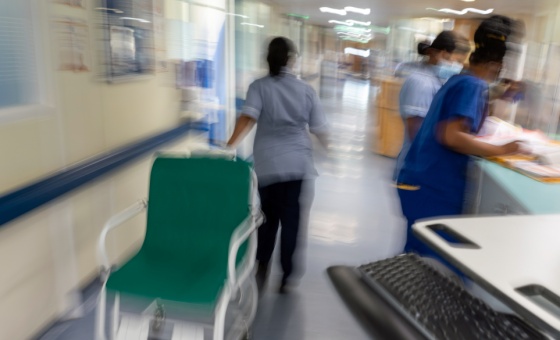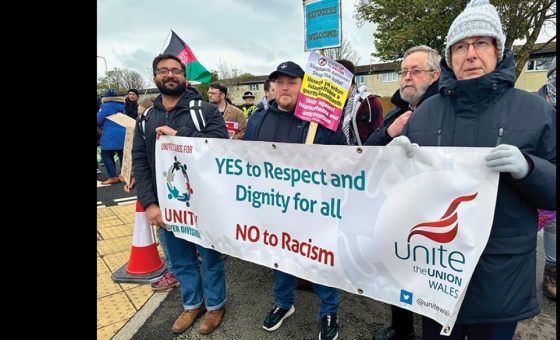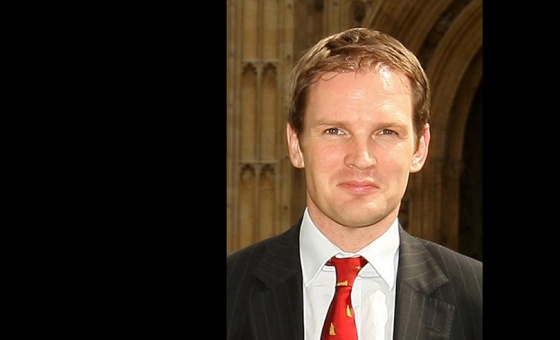This is the last article you can read this month
You can read more article this month
You can read more articles this month
Sorry your limit is up for this month
Reset on:
Please help support the Morning Star by subscribing here
The government is caught between a rock and a hard place and they will steer towards the rock of profits rather than the people’s health.
The deliberately confusing easing of the existing partial lockdown opens the door to employers to force workers back to unhealthy workplaces and will persuade some of those desperate, for whatever reason, to get out of the house. This could lead to the lockdown crumbling, causing confusion and stress and a high chance of a second spike in deaths.
Covid-19 has exposed the many faultlines of capitalism across the full range of human activity, the economic, political, scientific, infrastructure and the social.
Many people, having observed these failures, do not want to go back to austerity, privatisations, structural inequalities and low pay. This raised awareness of the injustices and the faults, not just in Britain but most of the capitalist world, is likely to lead to a heightened level of class conflict as we return to a new normal, possibly one that is better for most people.
Businesses that have taken a hit (although some have done very well out of the crisis) want to return quickly to making the profits they were used to. While workers, in varying situations, will want a safe work environment and a decent, secure income.
The contradictions are now clearer and workers, as always, will have to struggle to get what they need. Before we get over the post-Covid settlement there will be thousands of big and small conflicts over the conditions of the return to work.
The Peoples Assembly’s The Fight for Our Lives mass rally on May 7, with over 100,000 views, demonstrated the wide support for a safe return to work and a people-before-profit future. It included numerous demands to resolve the current crisis, more on the conditions required for the phasing out of the lockdown and then political and economic demands for investment in the future and rejection of austerity.
There are many outstanding problems still to be put right even before a slackening of the lockdown, such as PPE supply, testing for Covid-19, tracking and closure of, or safe working in, many workplaces doing unnecessary work.
The trade unions — for the first time in at least a generation — are not being portrayed negatively by most of the media, a sign that the state needs them, for the moment.
This does give leverage and should be pushed to the limit to get a better deal and to give confidence to workers to struggle. The government has made much of its consultation with trade unions but this has been criticised by the TUC and Keir Starmer as minimal with, for example, only a few hours being allowed to respond to policy documents.
Some workers may benefit from national trade union agreements, others from workplace trade union organisations confronting employers and some not yet unionised workers will have to take the step of collective action. Whatever the environment nothing will be given away, it will have to be fought for.
The Health and Safety at Work Act 1974 states that workers have the right to stop work if they feel it is unsafe. For this right to be realised it is better done collectively.
In all workplaces, unionised and non-unionised, it is essential that workers know how, and to who, they should complain if they feel unsafe at work.
Employers by law, should assess work-related hazards, and the results of such risk assessments should be made available to employees. If possible trade union reps should get involved in risk assessment – a tool used to compare actual risks with what is acceptable and then agree actions to make the work environment safe.
Employers may not be co-operative – for example, by reluctance to jointly assess – but they should be challenged on assessments and associated actions that are inadequate. Where actions are proposed and are acceptable then employers will often need to be pushed to implement. This should be done as the law, at least on paper, is on the side of those exposed to the risks.
The Health and Safety Executive, the TUC and most trade unions will have guidance on risk assessing and activists should understand the principles and demand that they have a say.
The pre-Covid work situation and the government’s responses to the crisis have resulted in very different situations, worries and no doubt wishes for the short and longer term. The bullet points below cover most categories of workers but there are many variations on these.
- Around half the workforce who worked throughout, often in unsafe conditions – their struggles will continue much as before
- The 6.3 million furloughed on 80 per cent of income, which is due to end in July – there will be arguments over when this is paid and the outstanding 20 per cent
- The newly unemployed waiting (many previously in the most precarious work) for universal credit, now topped up by £20 — the government must be pushed to maximise employment with guaranteed hours
- The self-employed (bogus or not), many of whom got an offer of some income but not till June — most of these will not be unionised but collective action will give them more clout
- The relatively comfortable fully paid worker at home — may well want to continue working at home much of the time. But many employers will want their staff back in the workplace
The National Education Union (NEU) and the three rail unions, all having members on the front line in terms of exposure to risk of infection, are leading the drive for a safe return to work, resisting government and employers.
Their positions must be respected, and the NEU has 350,000 signatures on a petition not to return till the union says it is safe, but it is likely that they are heading for a collision. The government has not met at least three of its five tests: reliable data on rate if infection, shortages of PPE and testing and, so not the fifth: confidence that adjustments will not result in a second peak that overwhelms the NHS. It is guessing and being pushed to do this to favour big business.
Keir Starmer has called for a national safety standard for return to work and this can be used to give confidence to make demands before returning to work.
The TUC is looking for a government job guarantee scheme for longer term job security and to avoid a major unemployment crisis and prolonged recession. This should continue throughout the phases of lockdown and be flexible for those in longer term isolation.
Covid-19 has hit the poorest and the most vulnerable the hardest, in terms of finances, housing security and health and their struggle will be the hardest as employers will want more zero-hours working and lower wages, with no pension, paid leave or sickness rights, so solidarity will be needed.
We are at a stage when a stark choice must be made: the quality of life for many could get significantly worse. Or, through a popular struggle over the next months and years, people could come before profit, the big decisions could be democratically made rather than by big business and life for the many would be safer and better.
As organisations such as the People’s Assembly, the TUC and the Labour Party consider such future policies thought should be given to maximising support for this direction, possibly via a new People’s Charter.
Andy Bain is trade union organiser for the Communist Party.

